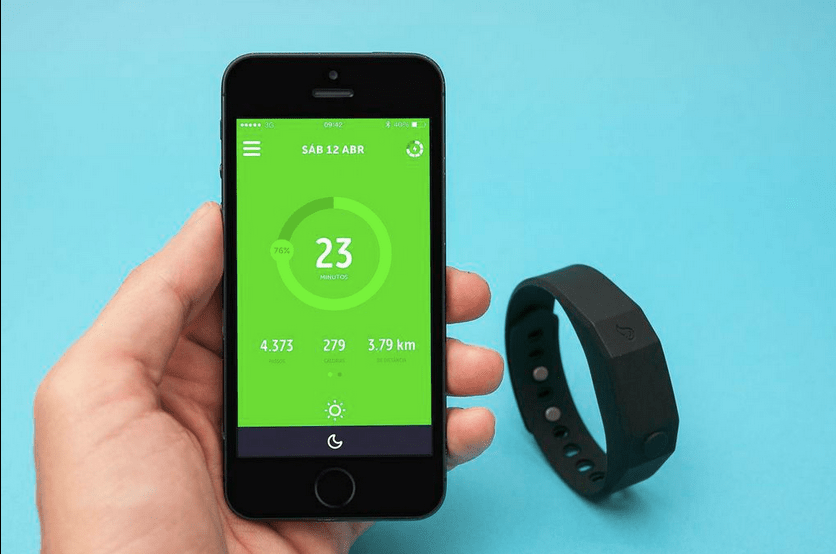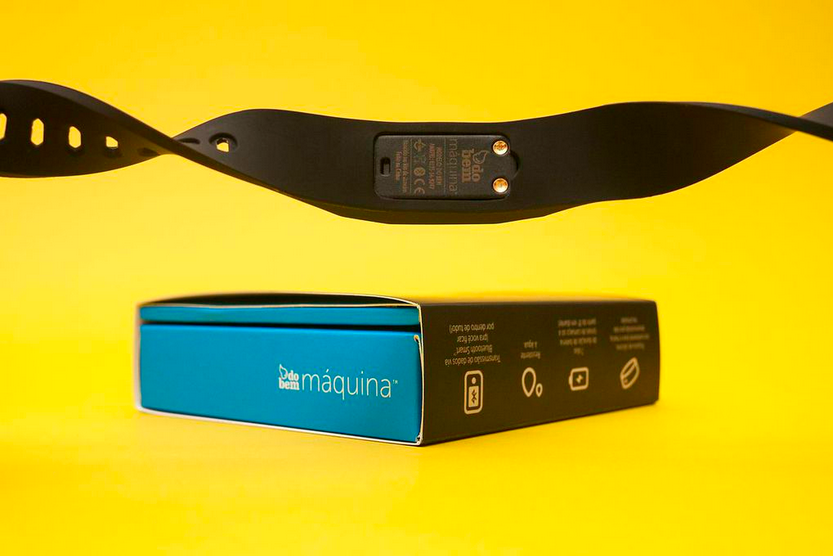Save 50% on a 3-month Digiday+ membership. Ends Dec 5.

If you’re Brazilian, chances are that you’ve seen the colorful boxes of “do bem” juice in your neighborhood grocery. And now, the beloved Brazilian drink brand, launched in 2007, is also appearing in your electronics store. Last month, the Rio-based manufacturer made a foray into the wearables sector, and launched the first Brazilian-made smartband — the “do bem máquina,” in partnership with digital agency Huge and technology partner 30 ideas.
The new smartband, targeted at the Brazilian market, measures users’ body movements and sleep patterns, and then compiles and analyzes the data through an app. By registering daily activities such as the number of steps taken, calories burned and distance traveled, it’s goal is to encourage users to lead healthier lives and make it easier for them by assessing levels of exertion and tracking progress.
Marcos Leta, the founder and owner of do bem (“well,” in English) said that the brand wanted to create a healthy experience that served its customers full-circle.
“Do bem has always been a proud user of technology through the way in which we create our juice products, so we wanted to find other ways to improve our customers’ lives while leveraging technology in a new way,” he said.
The smartband is equipped with the functionalities that one may find in the top smartbands in the market, whether it is Fitbit or Nike’s Fuelband. It is water-resistant, has a battery life that can last up to 11 days, has data transmission through Bluetooth 4.0 and is made of ultra soft and lightweight silicone.
Four different LED colors (red, yellow, green and blue) indicate varying levels of activity so users can easily track their progress. And it takes the smartband only three seconds to track a user’s sleep pattern, syncing with the app to produce easy-to-read graphics that help improve sleep.
Ad position: web_incontent_pos1
But it’s pricing at an equivalent of $100 is apparently what sets it apart in the Brazilian market (where, interestingly, Fitbit is not available for purchase).
“One very big differentiator is the affordable price for the Brazilian population,” Leta said. “The do bem máquina is a much more affordable option.”
Eduardo Torres, vice president and managing director for Latin America at Huge Rio de Janeiro, said that the main strategy was to conciliate three things: quality of life, do bem’s brand, and user experience. He added that the app combined features that are not typically offered together in one product, such as physical-activity monitoring and sleep monitoring. It also had different visual ways to monitor the progression of personal metrics and personal support.
“The target demographic for the app is not athletes but rather the average individual, who has become more attentive about a healthy lifestyle and is using do bem natural juices products to live a healthy life,” he said.
More in Marketing

Ulta, Best Buy and Adidas dominate AI holiday shopping mentions
The brands that are seeing the biggest boost from this shift in consumer behavior are some of the biggest retailers.

U.K. retailer Boots leads brand efforts to invest in ad creative’s data layer
For media dollars to make an impact, brands need ad creative that actually hits. More CMOs are investing in pre- and post-flight measurement.
Ad position: web_bfu
